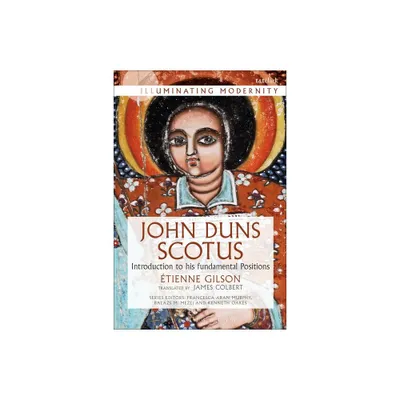Home
A Metaphysics of Creation for the Information Age: A Dialogue with Duns Scotus
Loading Inventory...
Barnes and Noble
A Metaphysics of Creation for the Information Age: A Dialogue with Duns Scotus
Current price: $100.00


Barnes and Noble
A Metaphysics of Creation for the Information Age: A Dialogue with Duns Scotus
Current price: $100.00
Loading Inventory...
Size: OS
*Product Information may vary - to confirm product availability, pricing, and additional information please contact Barnes and Noble
The metaphysical and theological writings of John Duns Scotus (1265/6-1308)—one of the most intriguing, albeit if now nigh-forgotten philosophers of the late Middle Ages—were seminal in the emergence of modernity.
A Metaphysics of Creation for the Information Age: A Dialogue with Duns Scotus
uses the prism of the concept of Creation as the leitmotif to assemble and interpret Scotus’s system of thought in a unified manner. In doing so, Liran Shia Gordon reframes Scotus’s metaphysics such that it confronts the challenges posed by information technology and its impact on our lives, thought, and actions. Surprisingly, although there has been great interest in the emergence and dissemination of information technology through the popular media, there has not yet been a genuine and vigorous philosophical consideration of the multiple ways information technology alters the basic categories by which we perceive and understand reality. Juxtaposing medieval philosophy and information technology offers an unconventional horizon to frame the foundational changes carried by the information revolution and reassess the relevancy of medieval philosophy.
A Metaphysics of Creation for the Information Age: A Dialogue with Duns Scotus
uses the prism of the concept of Creation as the leitmotif to assemble and interpret Scotus’s system of thought in a unified manner. In doing so, Liran Shia Gordon reframes Scotus’s metaphysics such that it confronts the challenges posed by information technology and its impact on our lives, thought, and actions. Surprisingly, although there has been great interest in the emergence and dissemination of information technology through the popular media, there has not yet been a genuine and vigorous philosophical consideration of the multiple ways information technology alters the basic categories by which we perceive and understand reality. Juxtaposing medieval philosophy and information technology offers an unconventional horizon to frame the foundational changes carried by the information revolution and reassess the relevancy of medieval philosophy.


















